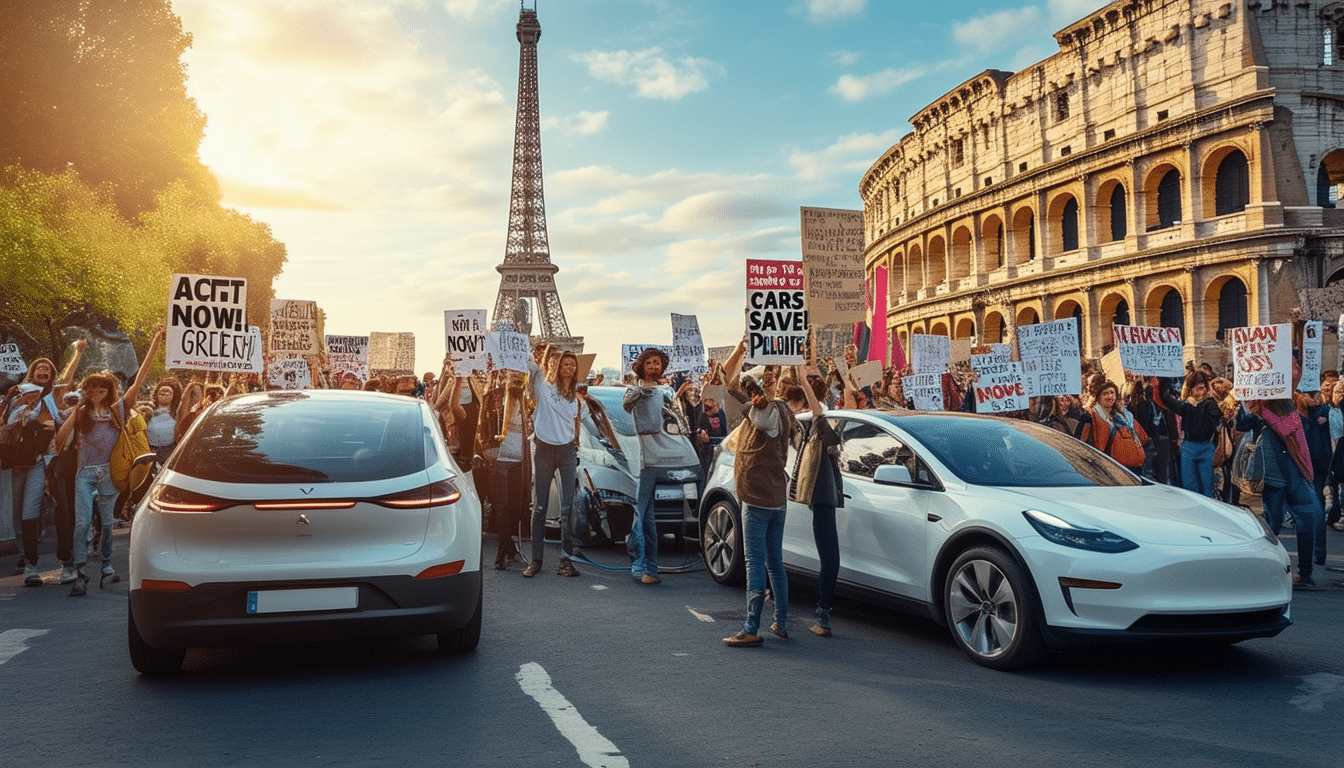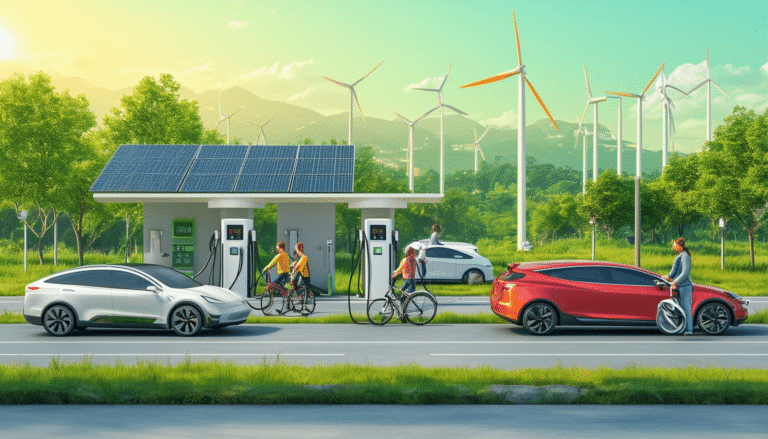Europa needs to act immediately regarding electric cars

The transition to electric vehicles in Europe faces a critical moment, according to the recent report from S&P Global. It is projected that electric vehicle sales in 2025 will be significantly lower than expected, jeopardizing the climate goals set by the European Union. This situation is due to several factors, ranging from changing economic conditions to the lack of adequate charging infrastructure. As the challenges for European manufacturers intensify, the need for urgent measures by legislators is more pressing than ever. A more predictable regulatory environment and robust support for clean technology development are essential to ensure that Europe leads the transition to a sustainable automotive future.
Europe faces an uncertain future regarding the electrification of its automotive fleet. In light of the anticipated decline in electric vehicle sales, the region is at a crossroads where it must implement urgent actions to meet its climate goals. This article explores the current challenges, necessary measures, and the future landscape of the automotive sector in Europe, highlighting the importance of a swift transition to electric mobility.
A worrying outlook for electrification
Recent reports from S&P Global warn of the uncertain future facing the electrification of vehicles in Europe. Projections for the adoption of battery electric vehicles have suffered a significant setback. According to the data, it is expected that sales in 2025 will be lower than initially forecasted, jeopardizing the climate objectives of the European Union.
Factors affecting the market
This slowdown is due to various factors, including changes in economic conditions and a reevaluation of market trends. The expected market share for electric vehicles has decreased from 27% to 21%, posing a considerable challenge to stimulate sales in the short term.
Challenges for European manufacturers
The stagnation of the electric vehicle market poses significant challenges for European manufacturers. To meet stringent emission standards, companies face increasingly high costs. Moreover, the inability to establish adequate charging infrastructure and other incentives is hindering the transition to electric vehicles.
Economic and social impacts
The lack of action could have serious consequences, not only for decarbonization goals but also for job creation and economic growth in the automotive sector. It is crucial to overcome these barriers if Europe wishes to maintain its leadership in the transition to more sustainable and cleaner transportation.
Urgent measures to accelerate the transition
The European Automobile Manufacturers Association (ACEA) has emphasized the need for the EU to take urgent action. They propose a comprehensive review of emission standards and a more stable regulatory environment to incentivize investment in clean technologies. Additionally, it is necessary to improve charging infrastructure to facilitate access to electric vehicles.
Action proposals
ACEA suggests cost relief for manufacturers and greater support for charging infrastructure as essential measures to ensure a sustainable future. These actions are fundamental to countering the risks of decline in the automotive sector and fulfilling climate commitments.
Technological innovations on the horizon
Amid the challenges, there are promising innovations. An engine that converts its own heat into energy is emerging as a potential solution. The connectivity in electric vehicle chargers revolutionizes the way the use and maintenance of these cars are visualized, facilitating the integration of new technologies and offering new development opportunities.
The European commitment to electric cars
Europe’s commitment to electric vehicles is evident, as indicated by the projected ban on combustion vehicles by 2035. Nonetheless, it is imperative that action is taken now to avoid stagnation in the advancement towards cleaner transportation. The benefits and functions of electric vehicles highlight their importance in the current context.
Looking to the future
To ensure the success of the transition to electric mobility, Europe must act immediately. With well-defined strategies and a firm commitment to the use of clean technologies, it is possible to overcome the current obstacles. The measures taken today will define the future of European transportation and its impact on climate change.
Urgency in the Transition to Electric Mobility in Europe
The need for Europe to act immediately regarding electric vehicles is imperative. The automotive industry, crucial for the European economy, is at a turning point, and delaying the adoption of electric vehicles could have significant environmental and economic repercussions. The recent assessment from S&P Global has highlighted the expected decrease in electric vehicle sales for 2025, threatening the achievement of the European Union’s climate goals. These objectives are vital for the decarbonization of road transport and for mitigating the impact of climate change.
To address this challenge, it is fundamental that European leaders take decisive action. Strict emission standards must be reevaluated to ensure they are fair and proportionate to the capabilities of the European automotive industry. Furthermore, a more stable regulatory framework is required to guarantee long-term certainty for investors and manufacturers, and to foster innovation in clean technologies. Charging infrastructure, a key pillar for the success of electric vehicles, must also be expanded and modernized.
Collaboration between the public and private sectors is key to overcoming these obstacles. Adequate incentives and supportive policies will facilitate a faster transition to electric mobility, ensuring that Europe continues to lead globally in automotive sustainability. The active participation of European citizens is also crucial, as they must be aware of the benefits of electric vehicles and support this transformation. The adoption of electric cars is a shared responsibility that will bring us closer to a cleaner and more sustainable future.
Ultimately, there is no time to lose. Europe must act decisively to ensure that the transition to electric vehicles is a success story, protecting both the environment and the competitive position of its automotive industry. Only through concerted and determined action can a green and prosperous future be secured for all the citizens of the continent.





